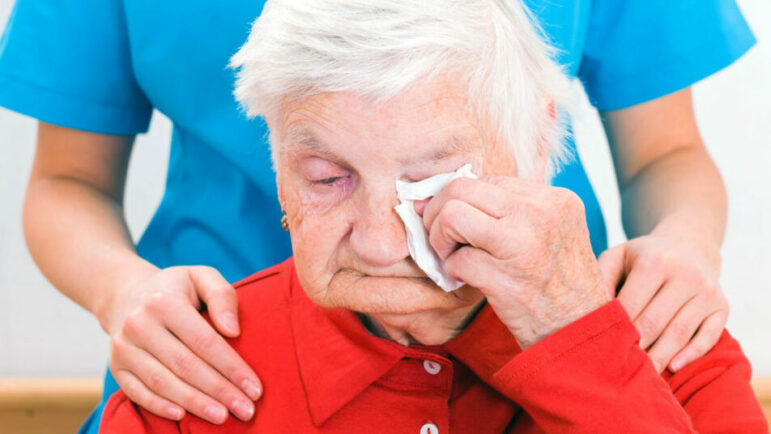As we age, it becomes harder to make new friends and maintain old relationships, while functional decline can make it more difficult to go to visit friends or go to social events. Over the past few years, geriatricians and public health experts have called attention to the health implications of loneliness in older people, including functional decline and increased risk of death.
Another potential consequence of social isolation is medication overload. Older adults who are lonely may report depression or pain to their doctors, which can result in a prescription for medications that have concerning side effects for older adults. Chronic health problems associated with multiple medication use can also make it difficult for older adults to be social, which can lead to loneliness.
In a recent study in JAMA Internal Medicine, researchers at the University of California, San Francisco School of Medicine examined the relationship between loneliness and use of medications that pose a high risk of adverse events for older adults.
Older adults who reported high levels of loneliness were more than twice as likely to be taking a benzodiazepine or sedative compared to those reporting no loneliness.
The researchers used data from the National Social Life, Health, and Aging Project (NSHAP), a nationally-representative survey of adults 65 and over living in the community (not in a nursing home or other institutional setting). The probability of medication was adjusted for age, sex, race/ethnicity, education, and multimorbidity (having more than one health condition).
They found that older adults who reported moderate or high levels of loneliness were more significantly more likely to be taking certain pain relievers, sedatives, and antidepressants. For some of these drugs, the difference was striking. Older adults who reported high levels of loneliness were more than twice as likely to be taking a benzodiazepine (11% vs 5%) or sedative (20% vs 9%) compared to those reporting no loneliness. Lonely older adults were about twice as likely to be prescribed an antidepressant compared to adults reporting no loneliness (27% vs 14%). High levels of loneliness was also associated with higher rates of polypharmacy; half of lonely older adults were taking five or more drugs, compared to 41% of adults not reporting loneliness.
The link between these medications and loneliness is concerning, because these medications have potentially dangerous side effects and are not recommended for older adults. Benzodiazepines and antidepressants increase the risk of falls, fracture, cognitive impairment, and other adverse events. And chronic use of NSAIDs (non-steroidal anti-inflammatory drugs, like high-dose aspirin or ibuprofen) increases the risk of kidney failure, cardiovascular events, and ulcers and bleeding, which can be life-threatening.
“It’s easier to prescribe a pill than to ask ‘Why are you lonely?’ and listen to the answer.”
Dr. Carla Perissinotto, geriatrician and Associate Professor of Medicine at the University of California, San Francisco
Further, there is little evidence that taking these medications reduces loneliness; these medications are used to treat the symptoms of loneliness while the underlying causes go unaddressed. “It’s easier to prescribe a pill than to ask ‘Why are you lonely?’ and listen to the answer,” said Dr. Carla Perissinotto, geriatrician and Associate Professor of Medicine at the University of California, San Francisco.
The study authors recommend “prescribing” social interventions for lonely older adults, by referring them to local community-based support programs. Not only would this help address the underlying causes of loneliness, but also would avoid prescription of high-risk medications. However, this requires clinicians to take the step of discussing such a personal topic with their patients, which requires time and a trusting relationship. “We see loneliness in our older patients every day, but we don’t have time to ask them about it, because we have to check off so many other boxes,” said Perissinotto.
In our current health system, clinicians have less time to spend with patients, and we expect to get a “pill for every ill.” Unfortunately these factors have led to the medicalization of loneliness, in which older adults are put at grave risk of harm from overmedication, while their underlying social isolation goes unaddressed. To tackle this problem, we need to give clinicians and patients the time and space to have difficult conversations, make “social prescribing” options more available to clinicians, and educate both clinicians and patients about the risks of certain medications for older adults.
